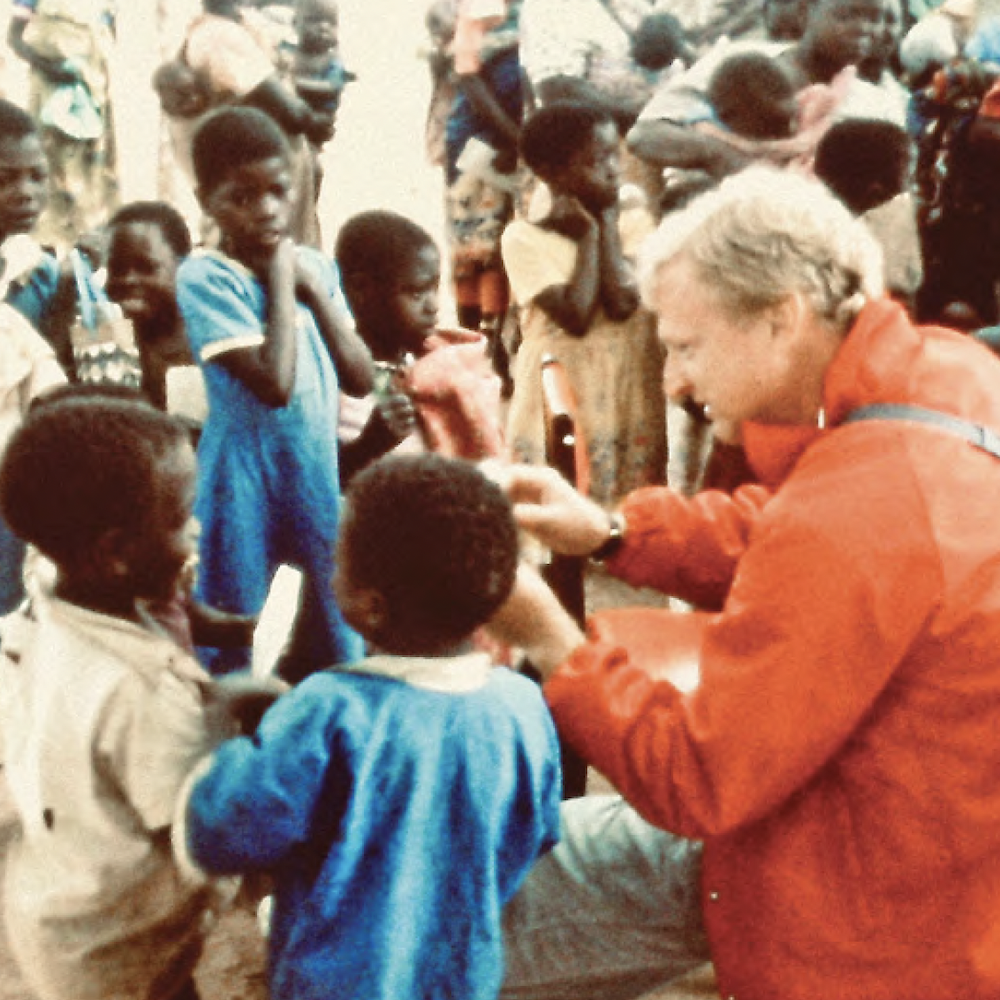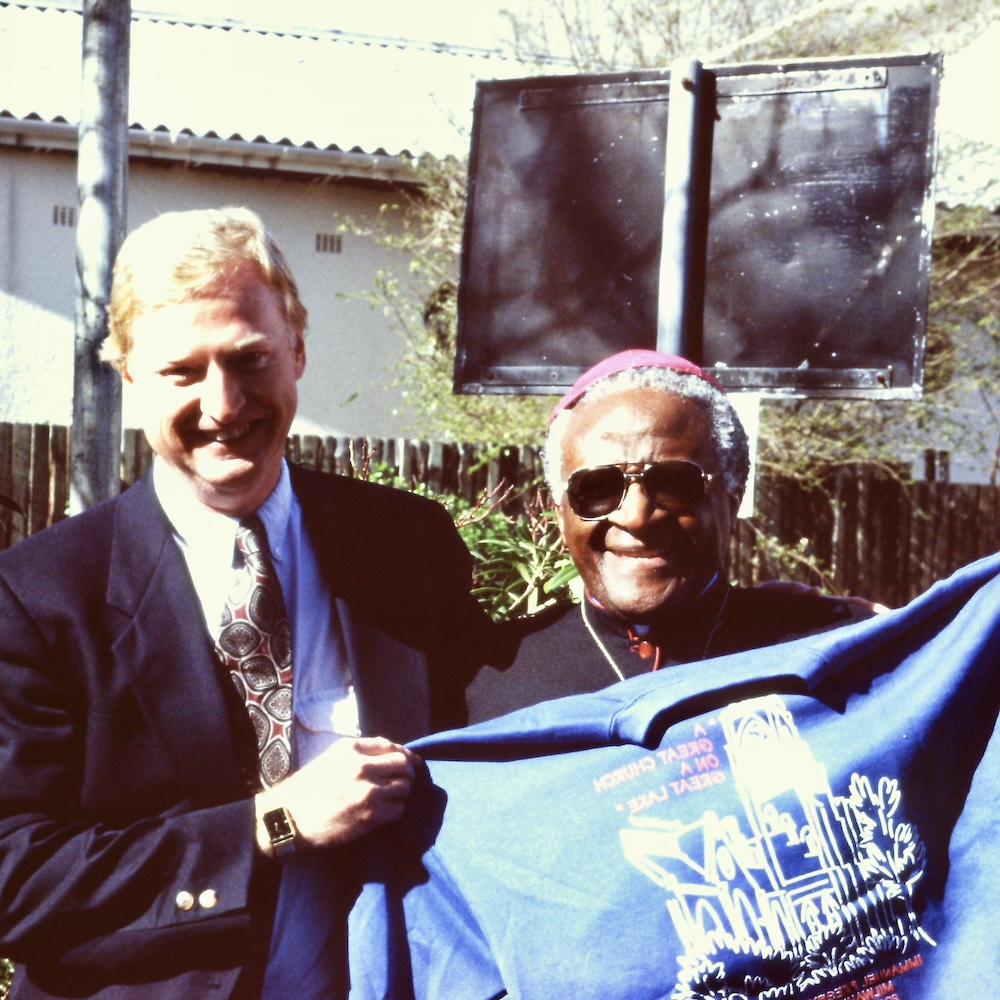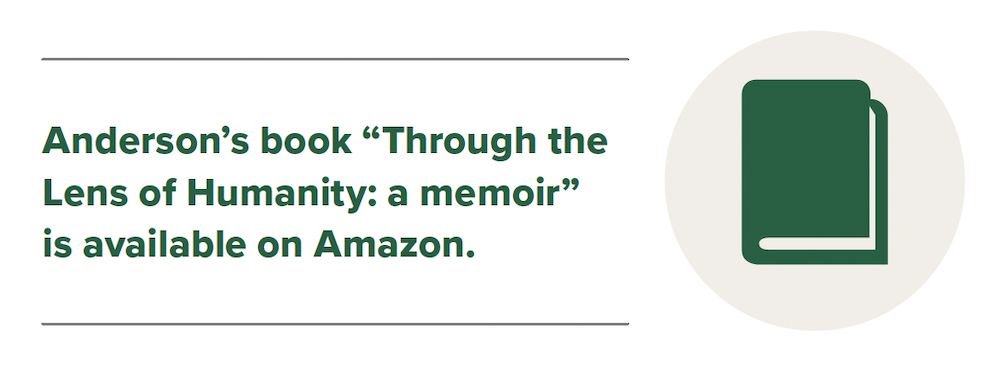It would be so easy to just start tossing out cliché after cliché. You know them – “people are people wherever you go” or “we are different, yet the same” or “we all live under the same sun” and on and on and on.
However, Mark Anderson (DSc Class 1; MSHA Class 17) is not a cliché.

For more than two decades, he served in health care leadership roles, including executive vice president and COO, at Children’s Hospital of Wisconsin. One day in 1987, he walked into the CEO’s office and requested permission for a sixweek leave of absence to volunteer at a remote mission hospital in India.
His boss, Jon Vice (MSHA Class 7), without hesitation had one word for him: “Absolutely!”
Over the next several years other mission trips followed: to Africa to deliver an ambulance to resource deprived Malawi; to Mwandi, Zambia, with a 24-person youth mission delegation; and to China to consult with Chinese leaders and health authorities on the construction of China’s first children’s hospital.
 So, Vice wasn’t surprised when Mark reappeared in his office in 2000 and announced he had accepted an executive position with Project HOPE, a renowned international health education and training organization to serve individuals living in developing and underserved areas of the world.
So, Vice wasn’t surprised when Mark reappeared in his office in 2000 and announced he had accepted an executive position with Project HOPE, a renowned international health education and training organization to serve individuals living in developing and underserved areas of the world.
While Vice wasn’t surprised, most everyone else had a different question: “Why?!?”
“I told them I did not want to be 10 years older and then look back and say, ‘I wish I had done that’ – I had the opportunity, so I did it. I don’t have any regrets today when I look back on my life and my choices,” said Anderson.
In January 2024, Anderson published “Through the Lens of Humanity (a memoir)” that details his humanitarian efforts in war torn cities like Sarajevo, Bosnia and Herzegovina, and Kabul, Afghanistan, and remote areas in Africa and India.
“People have questioned me – ‘how come you’re running off to another place when people need help here?’ And I tell them we are a very blessed country in terms of resources, structure, processes and people having access,” he said. “But the places I serve overseas, oftentimes their health care and social resources are sparse and limited and as a consequence, some of the things we’ve put behind us here – like tuberculosis and yellow fever – and areas where we’ve made advances – like diabetes, heart disease – are all still very prevalent abroad. To me it is a sense of helping those who truly are not as fortunate as we are in the U.S.”
As you would expect, Anderson’s new book is not a cliché typical memoir.
He includes remembrances and profiles of several legendary health care servant leaders like Albert Schweitzer, a Nobel Peace Prize winner who started and sustained a hospital in the country known today as Gabon, Africa, and Margrietha van der Kreek, who served alongside Schweitzer and continued his legacy of giving back to others in need of care.
He also brings us inside his intimate one-on-one conversations with several celebrated humanitarians including two other Nobel Peace Prize winners: Archbishop Desmond Tutu, who opposed Apartheid in South Africa for decades, and Saint Teresa of Calcutta (better known as Mother Teresa), who established the Missionaries of Charity in India in 1950.

Anderson says the biggest lesson he learned from these leaders was about passion and commitment. Those who have served will tell you how exhausting a one- or two-week mission can be. But to commit your life to doing what needs to be done day after day after day for people and an area that so desperately need help is beyond inspiring.
He calls those who serve in the trenches on a daily basis the quiet soldiers – the true heroes. Anderson says they each had a calmness about them despite the surrounding chaos. It is their dedication that called him – and he believes has called so many others – to continue to serve whenever they can.
“When you are in the crux of your service mission – that’s the moment of truth. That is when you discern what is really there, what is important to you, and what you really want to accomplish. This is your legacy,” said Anderson. “My advice is take advantage of all opportunities. Don’t be afraid to do whatever it is you feel called to do. And once you decide that – don’t be bashful about it – attract attention to your mission. The more we share our good work, the more others will emulate.”
Remember the words of the writer/poet William Ward Arthur, Anderson said:
“Each one of us will one day be judged by our standard of life – not by our standard of living; by our measure of giving – not by our measure of wealth; by our simple goodness – not by our seeming greatness.”


